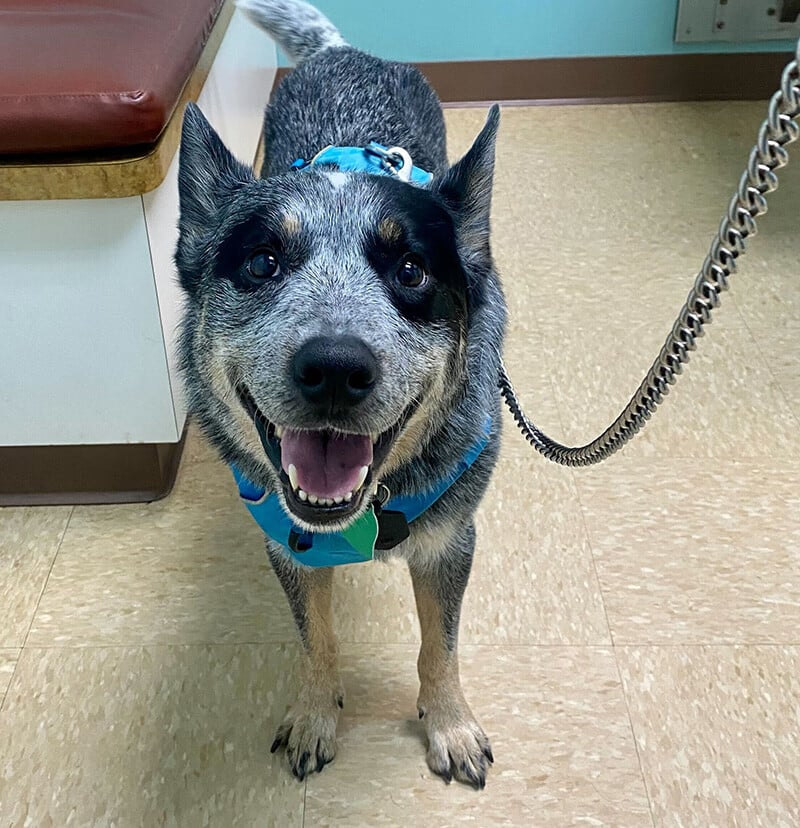
The Importance of Dental Care
By staying proactive with your pet’s dental care, you help them stay healthy and comfortable throughout their life. Maintaining your pet’s oral health is important for several reasons:
- Prevents dental disease: Regular care helps avoid issues like plaque buildup, tartar, gum disease, and tooth decay.
- Avoids pain and discomfort: Dental problems can be painful for pets, leading to difficulty eating, chewing, or playing.
- Prevents infections: Oral infections can spread to other areas of the body, including the heart, liver, and kidneys.
- Improves overall health: Good dental hygiene supports your pet's general well-being and longevity.
- Freshens breath: Regular cleanings and proper care keep your pet’s breath pleasant.
- Saves on future costs: Preventative dental care reduces the need for costly treatments like tooth extractions or surgeries down the road.
What Will My Veterinarian Check During a Dental Exam?
When you bring your pet in for a dental exam, our team will thoroughly evaluate your furry friend’s mouth, teeth, and gums to identify any early signs of dental disease or other oral health issues that may need treatment. During a dental exam, our veterinarians typically examine the following:
- Teeth for tartar buildup, fractures, or discoloration
- Gums for signs of inflammation, redness, or bleeding (gingivitis)
- Loose, broken, or missing teeth
- Bad breath (halitosis)
- Oral cavity for growths, lesions, or abnormalities
- Jaw alignment and bite (occlusion)
- Signs of pain or discomfort in the mouth
- Cheeks, tongue, and lips for ulcers or injuries
- X-rays to assess tooth roots, bone health, and underlying issues below the gumline
- Presence of periodontal pockets or gum recession
Reach Out Today

How to Prepare Your Pet for a Dental Exam
Preparing your pet for a dental exam can help make the experience smoother and less stressful for both of you. Start by familiarizing your pet with gentle handling around their mouth. Gradually lift their lips and gently inspect their teeth to get them used to having their mouth examined. You can also introduce dental-friendly treats and toys to create a positive association with oral care. If your pet isn’t already accustomed to toothbrushing, begin brushing their teeth gently a few days before the exam using a pet-safe toothbrush and toothpaste.

On the day of the exam, ensure your pet is calm and comfortable. A good walk or some playtime can help them release excess energy. Avoid feeding your pet right before the appointment, as your veterinarian may prefer an empty stomach if sedation or anesthesia is needed. Bring along any medical history or dental records, and communicate any concerns you have with the vet. Being calm and reassuring will also help ease your pet’s anxiety and make the dental exam a more positive experience.
Schedule Your Pet's Annual Dental Exam Today!

